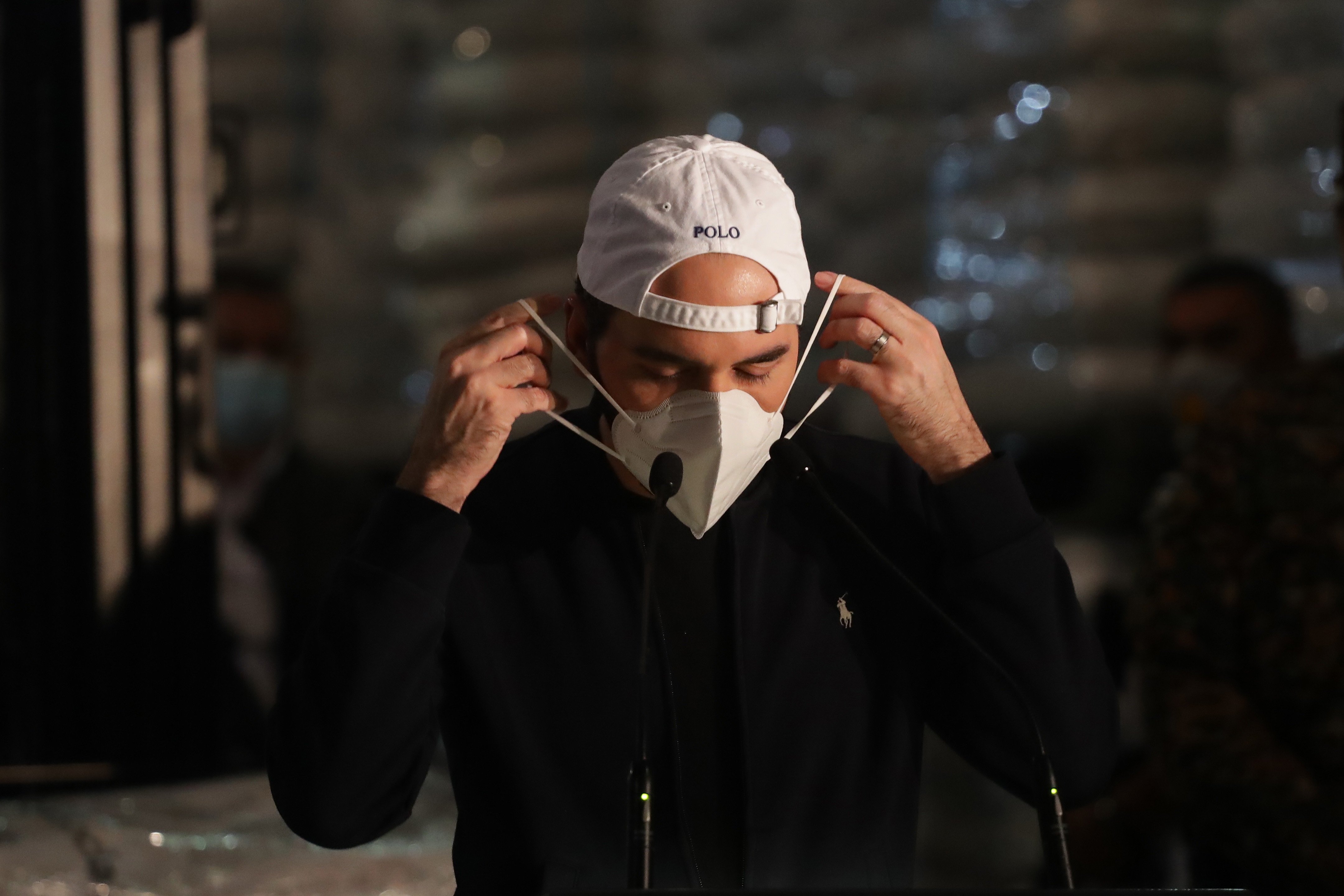On Thursday, 21st May, it became compulsory in the Spanish state to wear a face mask in all public spaces whenever a minimum interpersonal distance of 2 metres could not be maintained. This measure to prevent the spread of coronavirus is to remain in force until a vaccine is found.
The regulations, published this Wednesday, are as follows:
- The use of a mask will be compulsory in Spain in the street, in public spaces or in spaces open to the public, both inside and outside, whenever a minimum interpersonal distance of 2 metres cannot be maintained.
- Any type of face mask that covers the nose and mouth can be used, but hygienic masks and surgical masks are recommended (see below), and the health authorities' instructions on their use must always be followed.
- This obligation applies to all people aged six and over. The Spanish ministry has also recommended that children aged three to five wear masks in the same situations.
- There are a series of exemptions, which apply to: those who present some kind of respiratory difficulty which may be aggravated by the use of the mask; those for whom the use of a mask is not recommended for duly justified health reasons, or who, due to their situation of disability or dependency, present behavioural alterations that make it impossible to use. Force majeure or situation of need is also a justification for not wearing a mask.
- Also exempted are people carrying out activities which, by their nature, are incompatible with the use of a mask. The Spanish health ministry has said that, for example, if you go cycling, you should take your mask with you, but unless you find yourself in a densely crowded situation, you probably won't have to wear it. The same applies for other physical activities which make breathing with a mask impractical.
Up till now, the public wearing of masks has only been an obligation on public transport. Now it becomes compulsory much more generally
[UPDATE July 5th: Masks remain compulsory in Spain despìte the lifting of the state of alarm and the return of powers to regions. It is intended that masks will continue to be a requirement in public situations when safety distances cannot be assured, until a vaccine is available].
What are the different types of mask?
Masks will be an indispensable item during the de-escalation phase of the coronavirus lockdown. As the Spanish ministry of health has advised, there are three basic types of masks and each has specific characteristics.
Las mascarillas son un medio complementario de protección, úsala siempre que no puedas mantener la distancia de seguridad. No olvides que su uso es obligatorio en el transporte público.#EsteVirusLoParamosUnidos
— Salud Pública (@SaludPublicaEs) May 18, 2020
Consulta qué tipos hay y su uso correcto ⤵https://t.co/UnJm9GNLjy pic.twitter.com/rBabkgewRH
At one end of the spectrum, are the hygienic masks, a category which includes home-made or cloth masks. These are recommended for healthy people who have had no contact with coronavirus.
Then there are surgical masks, which include the type of mask distributed for free via Catalan pharmacies in recent weeks.
Hygienic and surgical masks are the two types of masks especially recommended for general public use under the new regulation. Both types give protection to people around the wearer, rather than protecting wearers themselves. Thus, when you wear one, you are helping others; and when you see others wearing them, you can be more at ease knowing that they are making you safer.
As surgical masks are professionally made, they are recommended for anyone in a public place who suspects they may have been exposed to the coronavirus or has symptoms which match the virus.
Finally are the self-filtering masks, sometimes referred to as EPI masks in Spain, standing for Individual Protective Equipment. These offer greater protection to wearers from their surroundings and are therefore appropriate for health professionals and people in more vulnerable situations. Three different variants are available of these masks known as FFPs (Filtering Face Piece): FFP1, which according to European standards stops a minimum of 78% of particles transported in the air; FFP2, which stops 92% of particles; and FFP3, which filters out 98%.
Tips on using your mask
You should take special care when putting on and taking off your mask, says the Spanish health ministry.
- Wash your hands before you put it on or take it off.
- Always handle it by the extremes.
- Don't touch it once you've put it on - covering and uncovering your mouth should not be practiced.
- The mask should cover mouth, nose and chin.
- If it is not a reusable mask, it is advisable not to use it again.
😷Cuando uses #mascarilla, recuerda:
— Ministerio de Sanidad (@sanidadgob) May 18, 2020
🧼Lávate las manos antes y después de usarla
✖️No te la bajes y subas mientras vas caminando
✖️No la toques
👍Debe cubrir boca, nariz y barbilla
✖️Si no es reutilizable, no la vuelvas a usarhttps://t.co/mFxaDSJ4KU#EsteVirusLoParamosUnidos pic.twitter.com/Ceimnkn02E
MAP | Coronavirus infections in Catalonia by municipalities and neighborhoods
GRAPHS & DATA | Latest coronavirus statistics for Catalonia and Spain

